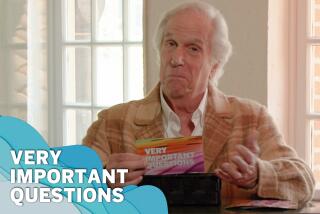Personal cost
REVOLUTIONS, notoriously, devour their children: Once-beloved radicals are beheaded at the guillotine. But for the actual children of revolutionaries and activists, this idea holds a whole other dimension of meaning. For them, politics extracts a personal cost. Deep down, they suspect they come second to the cause.
For Sonya Huber, daughter of a German immigrant and author of the memoir “Opa Nobody,” this conflict gnaws at her family. Her grandfather Heina’s commitment to socialist and antifascist politics in prewar and Nazi Germany demanded sacrifices from his wife and children, even as he fought on behalf of the proletariat. For his efforts, he earned the title of the family “nobody.”
Growing up, Huber heard about her grandfather’s activism, but she never knew the full story. When her own commitment to leftist politics led to emotional and physical collapse, she sought inspiration in his example. She wanted to know, “Why try to change the world?” She listened to family stories, and when those ran dry she crossed the Atlantic to search through German historical archives. In every chapter, she weaves stories of her activist life with richly imagined scenes of her grandfather, reconstructing his life from anecdotes and documentary evidence.
Huber also confronts links to Nazism in her own bloodline -- in the person of a great uncle who joined the Waffen-SS. Although she has no evidence that he took part in war crimes, she imag- ines him participating in atrocities nonetheless. It would be too easy, Huber writes, not to do so, to acquit him simply because the paper trail ends. His SS status, in other words, makes him complicit, regardless of what he did or did not do. At the same time, Huber frames his decision to join the SS as fraught with nuance -- perhaps as a survival strategy. And yet, she admits, such a “survival strategy” is her own invention, an expression of her hopes as opposed to the “truth.”
Huber is always careful to explain where research ends and imagination begins. Amid recent scandals about fraudulent memoirs, her honesty is profound in what it implies about storytelling and genre. Read as the saga of her quest to balance activism and motherhood, “Opa Nobody” is a memoir; read as a biography of her grandfather, it becomes speculative nonfiction. At times, it feels like a historical account. Her own label of “nonfiction novel” suits it well, but it is more than that. By connecting with history on such a personal level, she reveals how ordinary citizens can get swept up into movements of all kinds; allegiance is never as simple as a membership card.
Most radically of all for a progressive activist, Huber embraces the past. Instead of tossing it all out in search of something new, she ties a firm knot between then and now.
More to Read
Sign up for our Book Club newsletter
Get the latest news, events and more from the Los Angeles Times Book Club, and help us get L.A. reading and talking.
You may occasionally receive promotional content from the Los Angeles Times.









